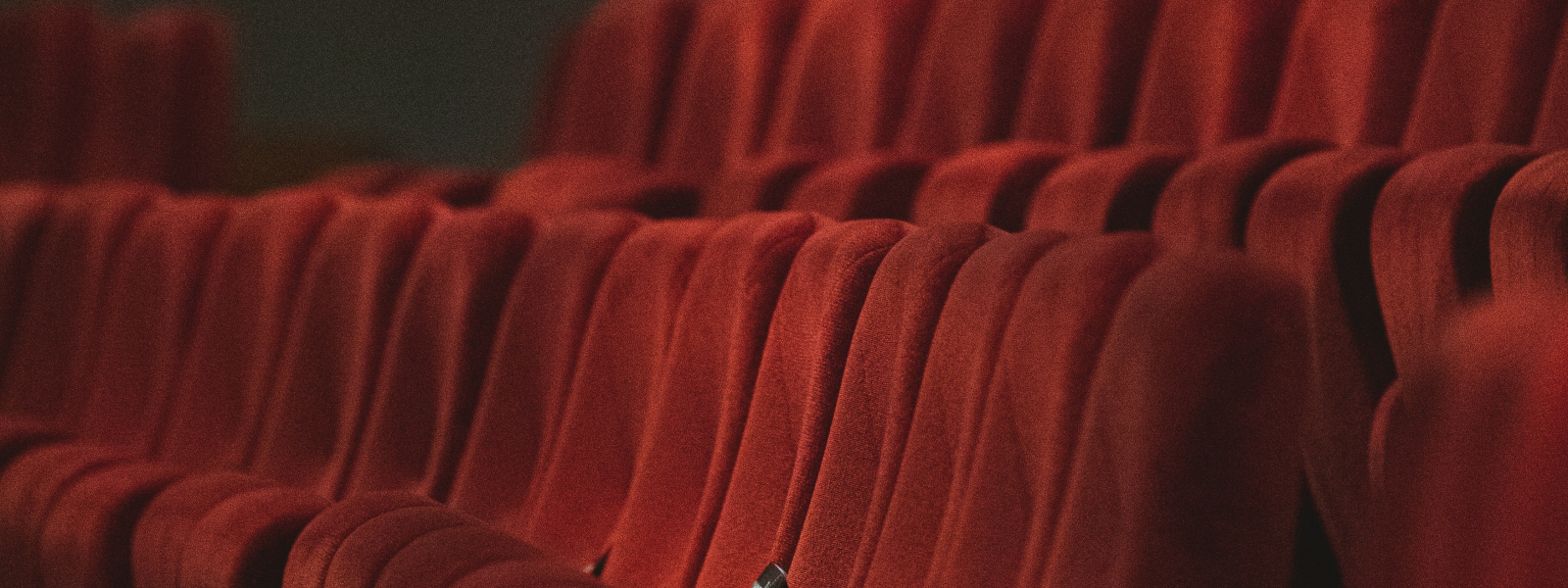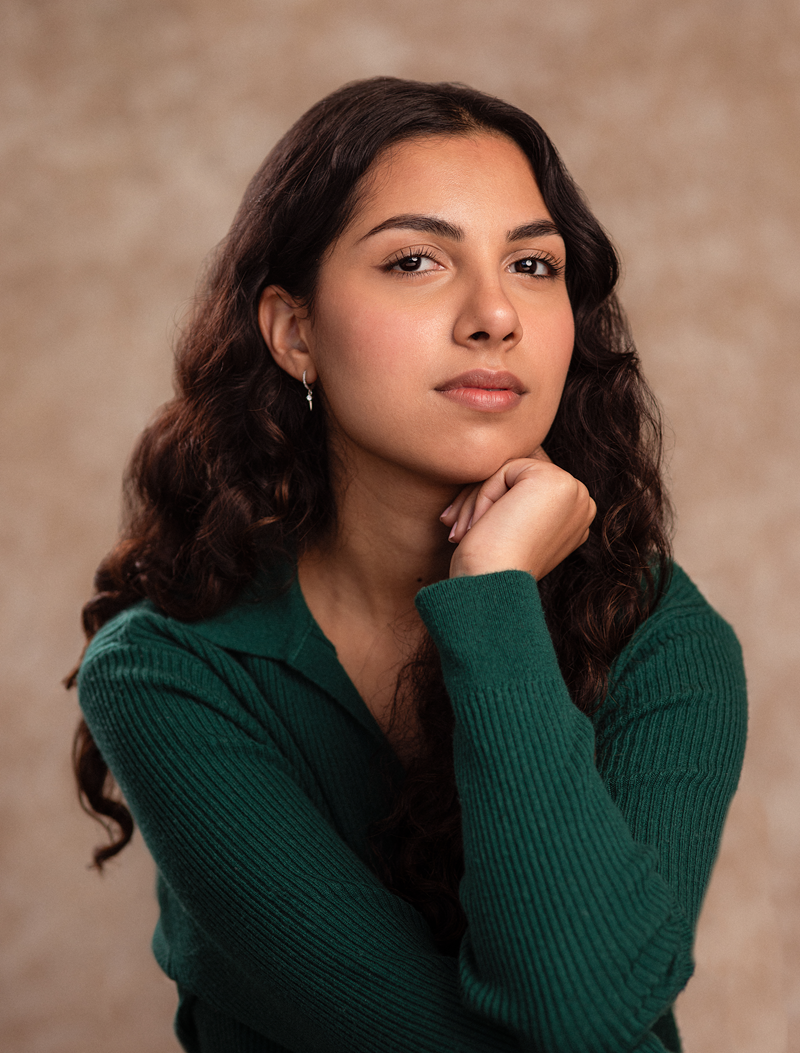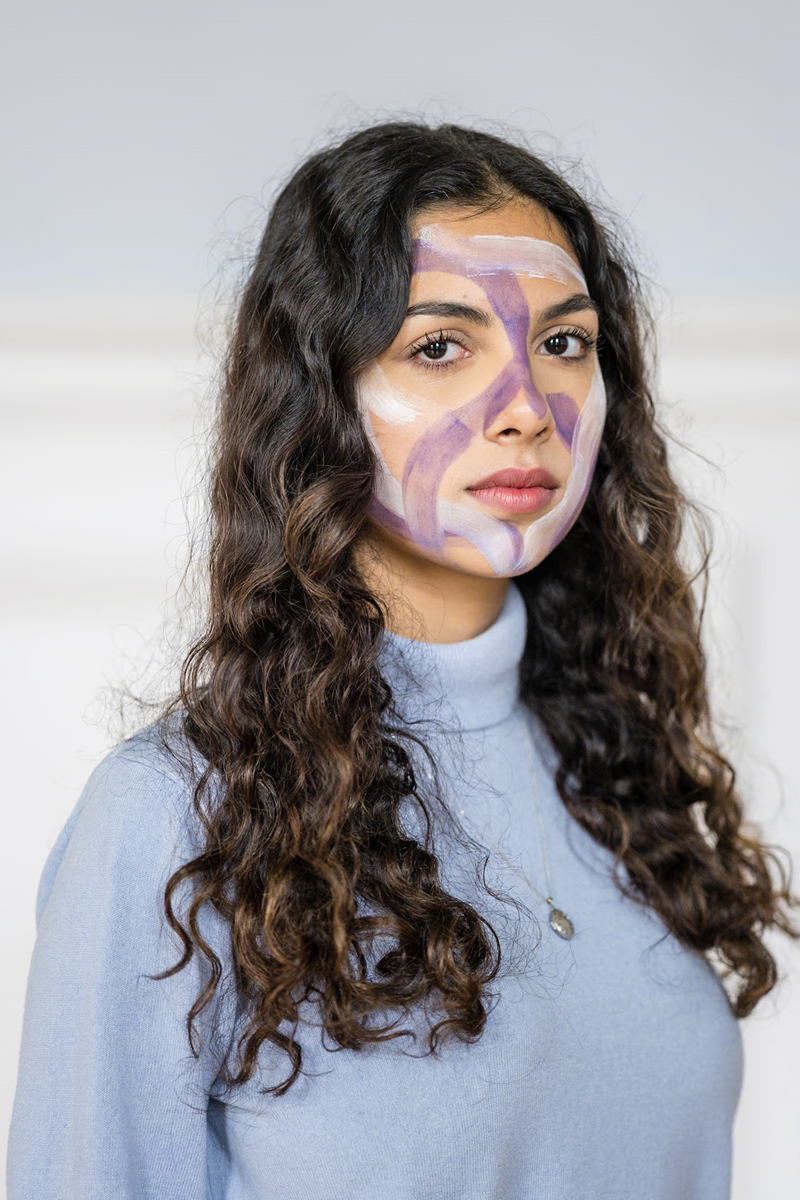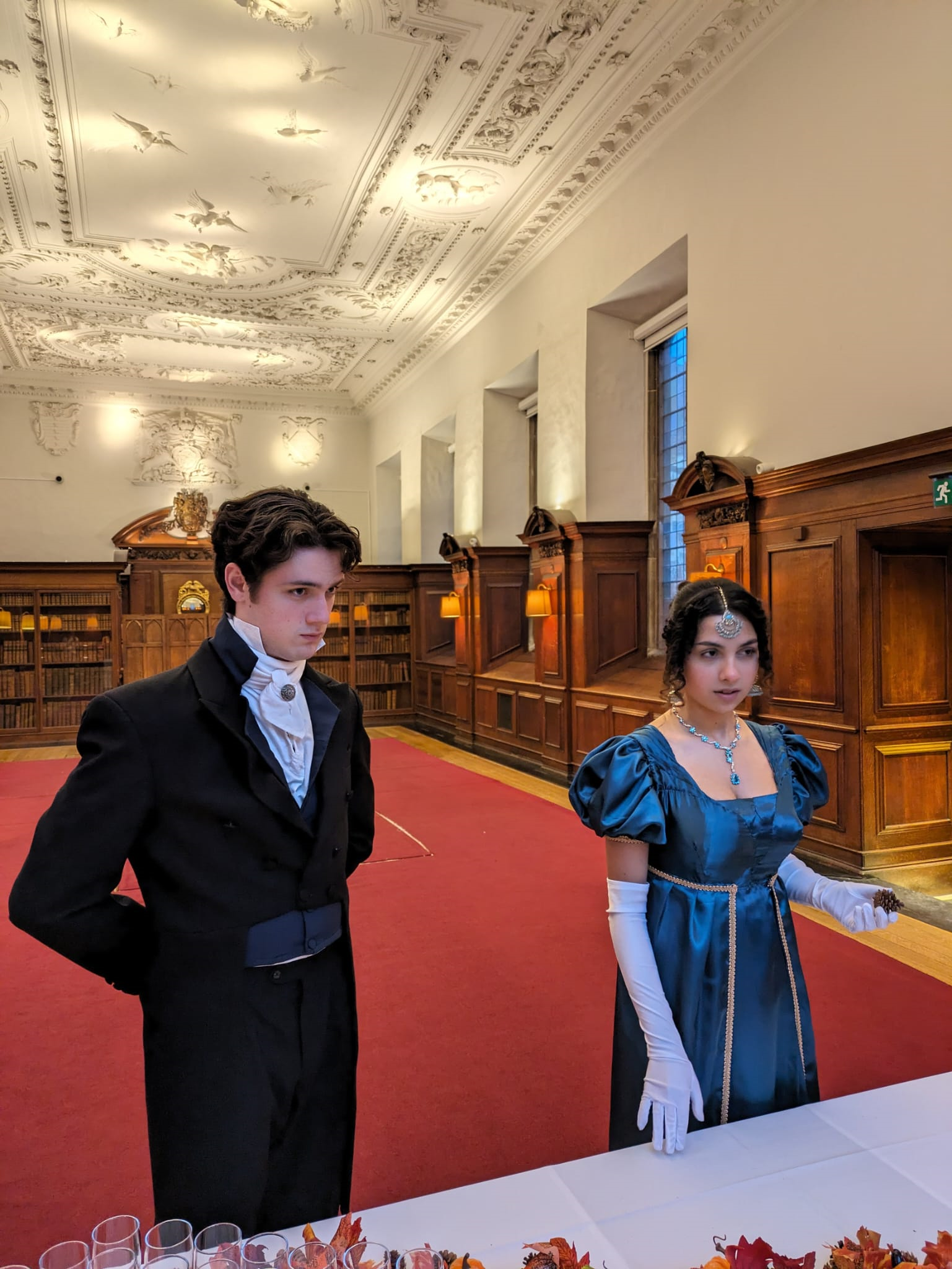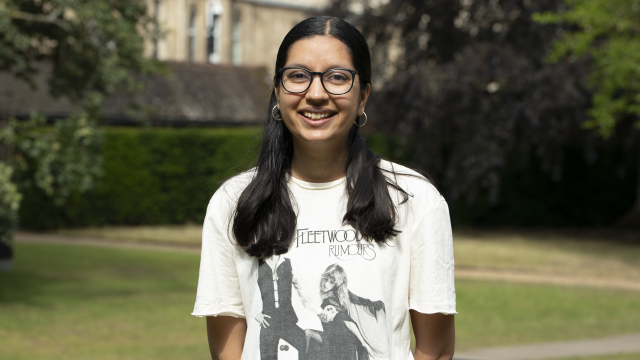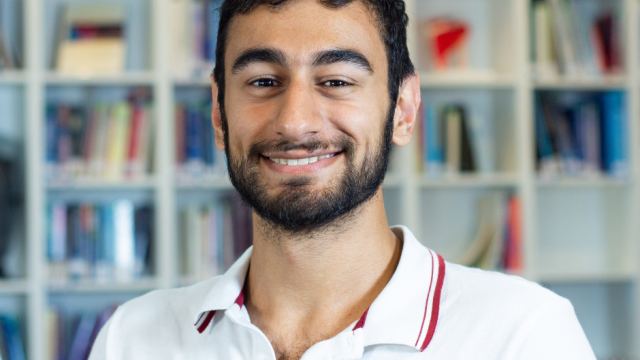Arabella Alhaddad (English, 2021) might be the personification of ‘positive mindset’, and evidence to its value.
Having chosen university over drama school, she has thrived in the competitive world of Cambridge student theatre, receiving positive reviews for her role in Amy Lever’s award-winning play, ‘Life Before the Line’ at Edinburgh Fringe and The Cockpit, London. As versatile as she is open to new challenges, in 2023 she completed the ‘Big Three’ of Cambridge Shakespeare productions, playing Hermia in the Marlowe Arts Show production of A Midsummer Night's Dream, Nurse in the CAST production of Romeo and Juliet, and Caliban in a post-colonial reworking of ETG’s The Tempest.
Growing up, with a childhood spent in London and Jordan, Arabella ‘took an interest in everything’, immersing herself in both her studies and extracurricular interests: ‘My mother believed so strongly in the power of education, so even in primary school I took work quite… I don't want to say seriously, but I did my work thoroughly and I enjoyed doing it that way. Doing something halfheartedly has never been me.’
‘I started acting really because I saw my older sister doing it. She used to go to acting classes on the weekend, and I was really intrigued by that. I mean, I was intrigued by almost everything my siblings did. My brother did air cadets and I told my mom, I want to do that! I want to do air cadets. And she said, ‘Okay, when you are 13…’ I did it for a good four years.’ (laughs)
Arabella Alhaddad
So, you saw your sister going to acting classes. Was that how you got the acting bug?
‘No, it started with my Year 6 production of ‘Hansel and Gretel’. My teacher at the time, she pushed me to become an actor, but in a very different way from most teachers. She taught me the most basic, fundamental skills of acting, and I found it so intriguing.
‘I did Drama GCSE, and then I was the lead in my sixth form play. I discovered acting as being more about negative capability. It's about trusting the process and that something will come out of it if you put more into it.’
Were you tempted to go to drama school?
‘Yes, definitely. But I think university has taught me things that I otherwise would not have learned: about the way that I work; managing deadlines; new social situations; and how to grow as an adult.
What was your first step onto the Cambridge acting scene?
‘So, my first gig was a Footlights smoker. They’re the easiest thing to get into, they just throw you in. I did a comedy song and that was really lovely because all of my friends came and they were cheering me on. And from there I did a Footlights Presents show, called ‘Bunker’, that won the Harry Porter Prize.
‘I did a student-written show at the Edinburgh Fringe called ‘Life Before the Line’, which won a highly esteemed award, the Edinburgh Fringe Fund Prize. I did loads of other stuff after that.’
Having decided not to go to drama school, was it a surprise that you had so many opportunities at Cambridge?
‘No, not really, but I also didn't expect the Cambridge theatre world to be nearly as competitive as it is. I thought, ‘Oh, it's university amateur dramatics… why would anyone care about that? There are bigger things, things like your degree, that you're paying a lot for!’
So why is it so competitive?
‘I think it's only for certain shows, to be fair. With the Arts show that I did, because they were bringing in a professional Director from outside, I think around one or two hundred people had auditioned. And it was performed in the Cambridge Arts Theatre; a very cool experience. And with the Fringe, you never know what could happen at the Fringe. So, I guess that's competitive in the same sense.’
It’s often said that acting - being on stage in front of people - can help build confidence. Do you feel you've gained other things from the experience?
‘Acting requires a real fascination with the human condition in general - human emotions and how humans interact and bodily tensions and bodily habits. Being observant of that in other people and within myself has really helped I think with social situations, figuring out who's feeling what and maybe why they're feeling that, so it has helped me be more empathetic and understanding of people.’
Do you find yourself looking at a room of people, studying everyone’s behaviour?
‘Yes, sometimes I have to catch myself: ”Bella, you're staring. Stop it.” Yes.’
You received funding from Sidney, to help you go to the Fringe and on a tour of America. Why are those experiences valuable in terms of your studies?
‘I wouldn't have been able to go on tour around America without that funding. And that was really exciting because I was performing in Romeo and Juliet and I'm studying the Tragedy paper this term. It was really, really rewarding to be able to understand that play inside and out in the way that I did.
‘So I'm very grateful. I feel extremely lucky that I got to experience that, and to go to America for the first time with the College's help.’
So, tell me about the ‘Big Three’.
‘So, I believe there are mainly three big Shakespeare shows open to everyone each year in Cambridge, and two of them hadn't run in over four years, because of COVID and budget issues before that. So, you have ETG, you have CAST, and then you have the Marlowe Arts show.
And you finished the year as Caliban in The Tempest. Tell me about that production.
‘It was incredible to be cast as Caliban, but those were also big shoes to fill.
‘For this production, we decided to humanise Caliban and give him back his agency. We presented a different narrative, subverting the original language so that Prospero loses her power and agency throughout the production. We split the Epilogue between Prospero and Caliban in a poly-textual moment, where Caliban gets the last word. Prospero is not portrayed in a sympathetic light at all during the show. It was interesting to see.
‘Playing Caliban was a further step in my personal development as an actor. I’ve gone from being typecast as this strong female lead, to a not-so-strong female lead and then an oppressed man (laughs). During The Tempest, I was repeatedly called a monster and a devil, but I just thought, “This is your Cambridge journey: from strong, independent woman to monster. This is what Cambridge turns you into, guys!” (laughs)
Arabella as Caliban in the ETG production of The Tempest
So, you've done a lot of theatre in the last year, and a lot of Shakespeare. Where's your interest going forward?
‘My interest going forward is on screen. I've always been drawn to the way that film works. My brother had a camera when we were, like, 10, and he would just record random sketches, the weirdest stuff, and I'd be behind the camera, thinking, ‘This is so cool.’ I liked the collaborative effort and the thought of building an ensemble of people to help create something, and I think the way that happens with films is very intriguing.’
So, we can expect to see you in a strong role, on screen, soon?
‘I do go for strong roles, but I think you can see strength in different ways. There's kind of a restrained strength, there's an outward strength, or there's a teenage strength – if you're rebellious and fierce. So I definitely explore the strong characters, but in different ways, if that makes sense.’
‘Growing up with lots of strong women around me has helped me discover what that really means. My mother is the strongest woman I know. And to be able to play a strong female, I kind of look to her and I think, how could I incorporate elements of my mum into this? It's so nice to do that. And it's the most exciting journey ever.’
Arabella is currently filming Pride and Prejudice, performing as Elizabeth Bennet. The film is due to be released in May 2024.
Production image above - location Pembroke Old Library.
Banner image: Jonatan Moerman, via Unsplash.com
If you have something that would make a good news or feature item, please email news@sid.cam.ac.uk
